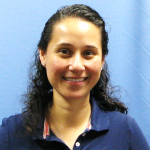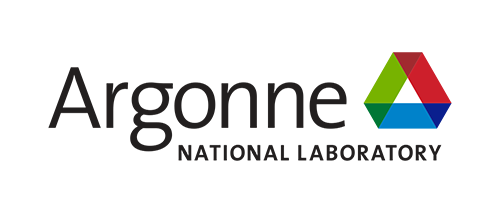May 2022 Edition

JoAnn (Joni) Garcia, Physical Therapy Assistant
Joni Garcia had only flown on an airplane one other time when she flew from south Texas to begin college at the University of Chicago in September 2001. Within two years, deeply moved by the events of September 11, Garcia left her undergraduate studies to enlist in the U.S. Air Force.
“I went in ready to do whatever was asked,” said Garcia, a Physical Therapy Assistant (PTA) in Argonne’s Health and Employee Wellness center.
After taking an aptitude test, the Air Force identified jobs in which it thought Garcia could excel and serve. She chose Physical Medicine Technician. Garcia learned the equivalent of a two-year associate’s degree in four-months, and then headed to Langley Air Force Base in Virginia. There, she provided physical therapy support to members of all branches of the armed services
Garcia rose to the rank of Technical Sargent (TSgt) and she still serves today with a deployable hospital unit near Saint Louis. She is also an invited speaker who encourages enlisted service members to obtain their civilian Physical Therapy Assistant license while they are still in the military. For many who enlist and keep re-enlisting, checking a civilian licensure box may seem superfluous. However, Garcia says the license is required (and acts as a significant threshold for higher salaries) once a person leaves the armed services and tries to find work.
“No one can take your education away from you,” she said. As a person of humble economic beginnings, she empathizes with those who shoulder student loans. Garcia cites student debt as the number one challenge she faced in developing a professional career. Today, she is earning her Master’s of Business Administration degree through a military-funded scholarship program.
At Argonne since 2013, Garcia employs her extensive training in orthopedics and ergonomics to help laboratory employees recover from musculoskeletal injuries or surgeries.
“When employees come to us, they need our help to get better,” she said. “If someone is thinking about a shoulder injury they developed over the weekend instead of their science, we are losing valuable minutes and hours they could be spending on their work. The sooner I can help people get better, the sooner they can get back to whatever they do at the Lab.”
Garcia credits two people in her life for shaping her professional identity. First, she cites her mother Ysabel, “a beautiful soul,” who worked for many years as a dedicated teacher’s assistant for children with significant disabilities. Second, she recalls a TSgt in the Air Force who modeled a whole-heartedly personal approach to patient care.
“People used to give him a hard time because he’d stay late to write notes after patient visits,” she remembered. “He didn’t want to spend time taking notes while he was with them. You can be the top student in your class, but patients need to know you care about their personal health and wellness. I’m 100% invested in my patients and getting them back to their best as quickly as possible.”


